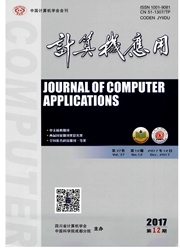

 中文摘要:
中文摘要:
随着云存储系统的迅速发展和广泛使用,许多企业开发者和个人用户将其应用从传统存储迁移至公有云存储系统,因此,云存储系统性能成为企业开发者和个人用户关注的焦点。由于传统测试难以模拟足够多的用户同时访问云存储系统;测试环境构建复杂,测试时间长,准备测试环境成本高;受网络因素及外界其他因素影响,评测结果不稳定。针对以上所述云存储系统性能评测的重点和难点,提出一种“云测试云”的公有云存储系统性能评测方法,该方法通过在云计算平台动态申请足够数量的实例,对公有云存储系统性能进行评测。首先,构建通用的性能评测框架,可动态伸缩申请实例,自动化部署评测工具及负载,控制并发访问云存储系统,自动释放实例及收集并反馈评测结果;其次,提出多维度的性能评测指标,涵盖不同典型应用、不同云存储接口;最后,提出一种可扩展通用的性能评测模型,该模型可以评测常见典型应用的性能,分析云存储性能影响因素,可适用于任何的公有云存储平台。为了验证该方法的可行性、合理性、通用性和可扩展性,利用所提方法对Amazon S3云存储系统进行性能评测,并使用s3cmd验证评测结果的准确性。实验结果表明,评测结果可以为企业开发者和个人用户提供参考意见。
 英文摘要:
英文摘要:
With the rapid development and wide application of cloud storage system, many enterprise developers and individual users migrate their applications from traditional storage to public cloud storage system. Therefore, the performance of cloud storage system has become the focus of enterprise developers and individual users. The traditional test is difficult to simulate simultaneous access with enough users to the cloud storage system, complex to build and has a long test time with high cost. Besides, the evaluation results are unstable due to the network and other outside factors. In view of above critical problems, a kind of "cloud testing cloud" performance evaluation method was put forward for public cloud storage system. Public cloud storage system was evaluated by this method through applying a sufficient number of instances on the cloud computing platform. Firstly, a general performance evaluation framework was built with abilities such as dynamic instance application, automated deployment of assessment tools and load, controlling concurrent access to cloud storage system, automated instance release and evaluation results collection and feedback. Secondly, some multi-dimensional performance evaluation indicators were presented, covering different typical applications and different cloud storage interfaces. Finally, an extensible general performance evaluation model was put forward, which could evaluate the performance of typical applications, analyze the factors influencing cloud storage performance and be applied to any public cloud storage platform. In order to verify the feasibility, rationality, universality and expansibility of this method, these presented methods were applied to evaluate Amazon S3 cloud storage system, and then the accuracy of the evaluation results was verified by s3cmd. The results show that the evaluation output can provide reference comments for enterprise developers and individual users.
 同期刊论文项目
同期刊论文项目
 同项目期刊论文
同项目期刊论文
 期刊信息
期刊信息
